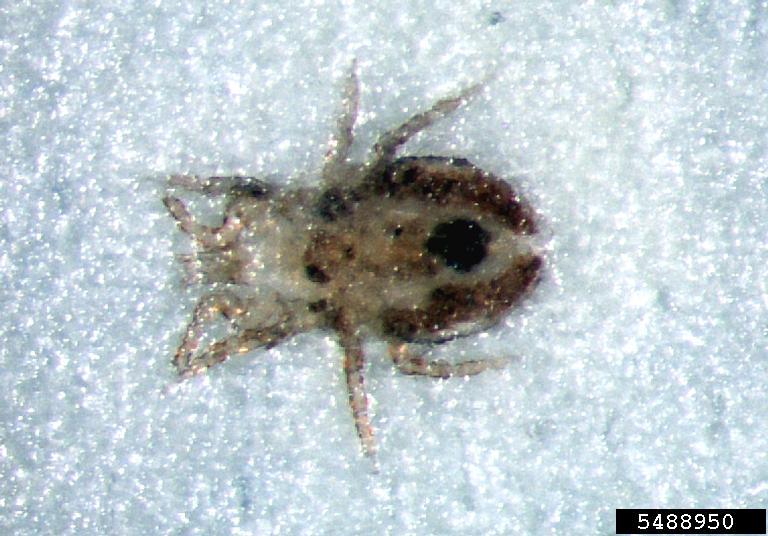Bird Mites
Dermanyssus gallinae; Ornithonyssus sylviarum
Identification
- very tiny; about the size of a period on a typed page
- black, yellow or white; appear bright red after feeding
Nesting Habits
Dermanyssus gallinae (chicken mite):
- nests of birds
- hide in small, protected areas when they are not feeding
Ornithonyssus sylviarum (northern fowl mite):
- all life stages on host, but adults may be found in areas around the host
Diet
- blood meals from hosts, including chickens, pigeons, sparrows, doves and starlings
- will feed on humans in absence of primary host
- feed mostly at night
Significance
- can migrate from bird nests or poultry houses (in- and outdoors) or rodents onto structures and crawl onto people and bite, causing skin irritation or itching
- spread by people, equipment and birds from infested areas
- can survive up to a month off a host
IPM Recommendations
- Remove bird nest using the inverted bag technique and clean the surface that came into contact with the nest
- Seal cracks and crevices where mites may hide and enter.
- In infested homes, hot wash and hot dry bedding and clothing left on floors.
- Take measures to control rodents and wild birds (see Vertebrate Pests).
- Use appropriately labeled dust-formulated insecticides, such as silica aerogel, as crack and crevice treatments.




